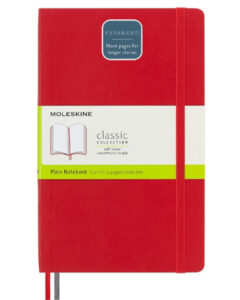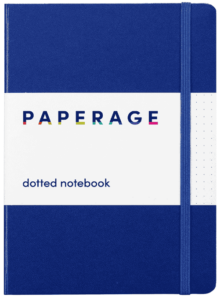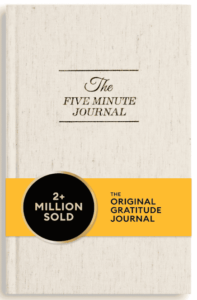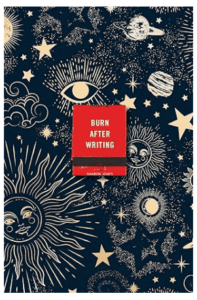In our tech-savvy world, keeping a diary might seem like an old-school habit. Let these 5 unexpected psychological benefits of keeping a diary convince you why writing down your thoughts and emotions can be a game-changer for your self-regulation.
Why use pen and paper in this modern world?
The practice of keeping a diary can deeply impact your mind and body. Whether it’s a notebook or a digital journal app, jotting down your thoughts and emotions can truly be transformative.
In this post you will learn the life-changing differences diary-keeping can make, delve into the biopsychological background of journaling, and understand how it enhances self-regulation.
This blog post is all about the benefits of keeping a diary.
Table of Contents
Toggle1. What is a Diary?
Before jumping into the benefits of keeping a diary, let’s discuss what a diary actually is.
Simply put, a diary is a personal journal where you can record your thoughts, experiences, and emotions. It’s like having a conversation with yourself—a safe space to express your innermost thoughts without fear of judgment.
If you look at it from a biopsychological perspective, keeping a diary taps into the interworking of your brain. When you write about your experiences, you engage the prefrontal cortex which is responsible for decision making and the limbic system which is involved in processing emotions.
This cognitive and emotional processing is essential for self-regulation—the ability to manage your thoughts, feelings, and behaviours effectively.
2. 5 Psychological Benefits of Keeping a Diary
Now, that we understand what a diary is, let’s get to the point. Here are explained some psychological benefits of keeping a diary, that will help your self-regulation.
You might learn, just how powerful this seemingly simple habit can be!
Biopsychologically speaking, journaling engages our cognitive processes, activating areas of the brain involved in self-reflection, emotional regulation, and memory recall. When we put our thoughts into words, we activate the prefrontal cortex, enhancing our ability to make sense of complex emotions and experiences.
Journaling for healing goes beyond mere catharsis; it’s about creating a narrative that integrates our thoughts and feelings, fostering emotional resilience and promoting psychological well-being.
Research shows that regular journaling can reduce stress, improve mood, and even strengthen immune function—a testament to our mind-body connection.
1. Enhances Emotional Awareness
Writing about your emotions helps you become more attuned to your feelings. By putting feelings into words, they become clearer and help you gain insight into your experiences.
This is called emotional self-awareness and is crucial for self-regulation. Imagine it like this; If you can’t identify your emotions, you can’t manage them effectively.
From a biopsychological background, this process activates the prefrontal cortex —the part of your brain responsible for regulating emotions and making decisions. By engaging in reflective writing, you’re essentially giving your brain a workout, strengthening its ability to regulate emotions and behaviours.
2. Reduces Stress, Anxiety and Overthinking
Imagine, you are stressed about a project. A diary is a place, where you can put down every single thought, no matter how petty, dark, mean or sad and just leave it there. It stops you from overthinking, and so reduces the stress response, which over time creates anxiety.
When you leave your worries inside yourself, you are suppressing your nervous system, leading to higher levels of stress hormones like cortisol. If you don’t manage your stress levels, then over time you will develop a mental health condition, like anxiety or depression.
Studies have shown, that expressive writing can significantly impact stress levels. By putting worries to paper, you gain perspective and solutions to your problems. And not only, keeping a diary is an amazing way to keep our stress at bay, but it also equips you with coping strategies for future challenges.
3. Improves Problem-Solving Skills
As we mentioned before, putting a problem down can create a space to find solutions. It is science.
By breaking down the problem into smaller parts and exploring different perspectives, you stimulate creative thinking and find solutions you may not have considered otherwise.
Biopsychology explains, that keeping a diary activates neural pathways in your brain associated with analytical thinking. By regularly engaging in diary writing, you strengthen these pathways, making it easier to approach problems with a clear and rational mindset.
4. Boosts Cognitive Processing
If you are thinking, that writing all of your obligations down will make you lazy and lose your memorizing ability, then you are greatly mistaken.
Imagine it like this; when you have a lot of tasks, dates and important things to remember, your brain acts like a web browser that has 100 different tabs open. It will be slow, unresponsive and eventually mix everything up.
By putting it all down onto a page, you are closing each tab and creating space in your memory and brain to normally function in the present moment. You are reducing the energy that you are using to keep up with all of your obligations. This fosters improved cognitive processing.
By organizing your thoughts on paper, you enhance memory retention and retrieval, making it easier to recall information when needed. Over time, you’ll notice improvements in your ability to think critically and solve problems effectively.
5. Fosters a Growth Mindset
A growth mindset is a belief that abilities and intelligence can be developed through effort and perseverance.
When you regularly document your experiences and reflections of your emotions and thoughts, you create a narrative of continuous growth and learning. Now every opportunity is a new way of learning about yourself, the world and those around you.
This shift in mindset is linked to changes in brain chemistry. Positive reflections and goal-setting can increase dopamine levels—a neurotransmitter associated with motivation and reward.
Keeping a diary will also help you create more resilience, adaptability and be open to new challenges and opportunities.
benefits of keeping a diary
3. What is a Diary Entry?
I hope, I have managed to convince you, that a simple act of keeping a diary can be life-changing not only for self-regulation but also for emotional and mental well-being.
If you are curious about how to start a diary, look no further. Here we are going to talk about diary entries, give you some ideas on what to write in a diary and provide you with some top-tier diary writing examples.
A diary entry is simply a record of your thoughts, experiences, and emotions on a particular day or event. It can take many forms, from a stream-of-consciousness reflection to a structured narrative.
Biopsychologically speaking, journaling engages our cognitive processes, activating areas of the brain involved in self-reflection, emotional regulation, and memory recall. When we put our thoughts into words, we activate the prefrontal cortex, enhancing our ability to make sense of complex emotions and experiences.
Journaling for healing goes beyond mere catharsis; it’s about creating a narrative that integrates our thoughts and feelings, fostering emotional resilience and promoting psychological well-being.
Research shows that regular journaling can reduce stress, improve mood, and even strengthen immune function—a testament to our mind-body connection.
benefits of keeping a diary
4. Diary Writing Topics
Feeling inspired to start your own diary? Here are some diary-writing topics to get you started:
- Daily Reflections: Reflect on your day, including highlights, challenges, and lessons learned.
- Gratitude Journaling: Write about things you’re grateful for, no matter how big or small.
- Goal Setting: Set short-term and long-term goals for yourself and track your progress.
- Creative Writing: Let your imagination run wild with fictional stories or poetry.
- Self-Discovery: Explore topics such as your values, beliefs, and aspirations.
- Prompts: Use prompts, that will help you dig deeper into your experiences.
Here are the best diary prompts, written by biopsychologists, that readers absolutely love:
- 13 Thought-Provoking Journaling Ideas for Adults to Help You Gain Transformative Wisdom
- 21+ Liberating Journaling Prompts for Personal Growth: Break Through Limiting Beliefs
- 17 Tranquil Mindfulness Journal Prompts pdf for a Stress-Free Day
- 12 Unique and Creative Daily Journaling Questions for Self-Care
- 21 Game-Changing Stress Relief Journal Prompts to Elevate Your Day
- 40 Introspective Journaling Prompts for Therapy to Find Clarity and Healing
- 31 Transformative Journaling Prompts for Self-Discovery: A Month’s Challenge
- 21 Vital Prompts for Journaling Through Breakup to Find Closure
- 80+ Powerful Journaling Prompts for Depression to Reclaim Your Life
- 31 Therapeutic Daily Journaling Prompts for Mental Health: Heal and Thrive
Remember, there are no rules when it comes to diary writing—just write from the heart and let your thoughts flow onto the page.
Get some great ideas on what to put in your diary: 7 Unexpected Journaling Page Ideas You Haven’t Tried Yet
benefits of keeping a diary
5. Diary Writing Examples
To give you a better idea of what diary writing looks like in practice, read some diary-writing examples.
Keep in mind that diary entries reflect the personality of the writer. Each diary will be different and that is the key. Diary writing is an authentic experience, in its essence, its main focus is revealing your true self to your eyes.
Stream-of-Consciousness: “If I had to choose a day, when I could rot in bed, today would be the day. My mind is sooo slow and hazy. I can’t seem to think clearly and have no motivation for anything. All I want to do is pick up a good book, get the fire going and throw myself into the bed.”
Structured Narrative: “29.5., at my home desk. Mood: 2/10. Feeling: Tired, cloudy. Five things I am grateful for: I can work from home, so I can be in my comfy clothes. For the coffee, that is keeping me awake. My cat, that is keeping me company. Lunch, so I can take a break. Evening, when I will finally go to bed.”
Goal Setting: “Short-term goal: Finish reading my current book by the end of the week. Long-term goal: Get all of my family to agree to go on a vacation together and organise it.”
Emotional Check-in: “Ah, I don’t know. I don’t have the words to put today in perspective. Heavy, cloudy, hazy. I feel depleted and a bit sad. My body feels heavy and my mind slow. ”
Exploring different diary writing styles can help you find what resonates with you. For more in-depth inspiration, browse through these diary examples:
Asking for Big Things: A Journey Beyond Aesthetic Vision Boards
The Chemistry of Connection: How Simple Pleasures Transform Our Days
Miss Consistency: Why She Scares Me and How I’m Learning to Embrace Her
6. The Best Diaries
Here are some of the most liked breakup journals, that journalers absolutely love and are available on Amazon:
Moleskine Classic Hardcover Dotted Journal
If you are looking for a plain journal to write in then this timeless design with durable construction and subtle dot grid pages is perfect for you.
Paperage: Dotted Notebook
This best-selling diary notebook, featuring a sleek 5.7″ x 8″ vegan leather cover that’s both durable and water-resistant is a perfect blank space for any diary enthusiast. With 160 college-ruled lined pages, an inner expandable pocket, sticker labels, a ribbon bookmark, and an elastic closure band, organization and style are effortlessly combined.
The Five Minute Journal: Original Daily Gratitude Journal
The Five Minute Journal is a simple yet powerful tool for cultivating gratitude and positivity in just minutes a day. With its structured format, it guides users through morning and evening reflections, including gratitude lists, daily goals, affirmations, and highlights of the day. The journal’s prompts are rooted in positive psychology, helping users build a habit of mindfulness and self-awareness. Beautifully designed with a durable hardcover and minimalist layout, it’s perfect for anyone seeking a quick, effective way to focus on the good and create a more intentional life.
The Breakup Journal – 30 Days To Get Over Them
Burn After Writing is a reflective journal with prompts that encourage self-discovery and honesty. It offers a safe space to express your innermost thoughts, with the option to keep or destroy your revelations. Perfect for introspection and personal growth, it’s a uniquely private journaling experience.











